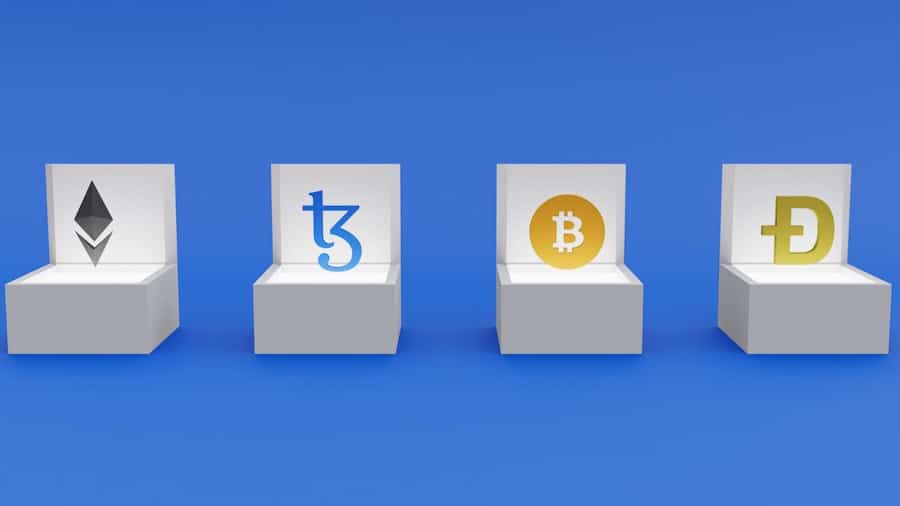Smart contracts represent a transformative approach to managing agreements within supply chains, leveraging blockchain technology to automate and enforce contractual obligations. These self-executing contracts, with the terms of the agreement directly written into code, eliminate the need for intermediaries, thereby streamlining processes and enhancing transparency. In the context of supply chain management, smart contracts can facilitate a myriad of functions, from automating payment processes to ensuring compliance with regulatory standards.
The integration of smart contracts into supply chain agreements is not merely a technological upgrade; it signifies a paradigm shift in how businesses interact, transact, and maintain trust in their operations. The rise of globalization and the complexity of modern supply chains have necessitated innovative solutions to manage the myriad relationships and transactions involved. Traditional supply chain agreements often suffer from inefficiencies, such as delays in payment processing, disputes over contract terms, and a lack of visibility into the status of goods.
Smart contracts address these issues by providing a decentralized platform where all parties can access real-time data and insights. This not only enhances operational efficiency but also fosters a culture of accountability and trust among stakeholders. As businesses increasingly recognize the potential of smart contracts, they are poised to redefine the landscape of supply chain management.
Key Takeaways
- Smart contracts in supply chain agreements automate and execute contract terms using blockchain technology.
- Advantages of smart contracts in supply chain management include increased transparency, reduced costs, and improved efficiency.
- Potential challenges and limitations of smart contracts in supply chain agreements include security vulnerabilities and the need for standardization.
- Integration of IoT and blockchain technology in smart contracts for supply chain agreements enables real-time tracking and verification of goods.
- Regulatory and legal considerations for smart contracts in supply chain agreements involve compliance with existing laws and regulations, as well as the need for dispute resolution mechanisms.
Advantages of Smart Contracts in Supply Chain Management
One of the most significant advantages of smart contracts in supply chain management is their ability to enhance transparency. By utilizing blockchain technology, all transactions and contract executions are recorded on a public ledger that is immutable and accessible to all parties involved. This transparency reduces the likelihood of fraud and disputes, as every stakeholder can verify the authenticity of transactions in real-time.
For instance, if a supplier fails to deliver goods on time, the smart contract can automatically trigger penalties or adjustments in payment, ensuring that all parties adhere to agreed-upon terms without the need for lengthy negotiations. Moreover, smart contracts significantly improve efficiency by automating various processes that traditionally require manual intervention. For example, in a typical supply chain scenario, multiple parties may be involved in verifying shipment details before payment is released.
With smart contracts, these verification processes can be automated through predefined conditions coded into the contract. When goods are delivered and verified against the contract terms, payment can be executed instantly without human oversight. This not only accelerates transaction times but also reduces administrative costs associated with managing contracts and payments.
Potential Challenges and Limitations of Smart Contracts in Supply Chain Agreements

Despite their numerous advantages, the implementation of smart contracts in supply chain agreements is not without challenges. One significant limitation is the reliance on accurate data inputs. Smart contracts operate based on predefined conditions; if the data fed into the system is incorrect or manipulated, it can lead to erroneous outcomes.
For instance, if a shipment’s delivery status is inaccurately reported due to a technical glitch or human error, the smart contract may execute actions that do not reflect the actual situation, potentially resulting in financial losses or damaged relationships between parties.
While many jurisdictions are beginning to acknowledge the validity of blockchain-based agreements, there remains a lack of uniformity in legal frameworks governing these contracts.
This inconsistency can create uncertainty for businesses looking to adopt smart contracts in their supply chains. Additionally, the complexity of coding these contracts requires specialized knowledge that may not be readily available within all organizations. As a result, companies may face difficulties in developing and maintaining smart contracts that accurately reflect their operational needs.
Integration of IoT and Blockchain Technology in Smart Contracts for Supply Chain Agreements
The integration of Internet of Things (IoT) technology with blockchain and smart contracts presents an exciting frontier for supply chain management. IoT devices can provide real-time data on various aspects of the supply chain, such as temperature monitoring for perishable goods or tracking the location of shipments. When combined with smart contracts, this data can trigger automated actions based on specific conditions being met.
For example, if a temperature-sensitive product exceeds a certain threshold during transit, an IoT sensor can alert the smart contract to initiate a response, such as notifying stakeholders or adjusting payment terms. This synergy between IoT and blockchain not only enhances operational efficiency but also improves risk management within supply chains. By continuously monitoring conditions and automating responses through smart contracts, businesses can mitigate potential disruptions before they escalate into significant issues.
For instance, if a shipment is delayed due to unforeseen circumstances, IoT devices can provide real-time updates that allow the smart contract to adjust delivery schedules or renegotiate terms with minimal human intervention. This level of responsiveness is crucial in today’s fast-paced market environment.
Regulatory and Legal Considerations for Smart Contracts in Supply Chain Agreements
As businesses explore the adoption of smart contracts within their supply chains, they must navigate a complex landscape of regulatory and legal considerations. One primary concern is ensuring compliance with existing laws governing contract formation and execution. While many jurisdictions have begun to recognize electronic signatures and digital agreements, there remains ambiguity regarding how these principles apply to smart contracts specifically.
Companies must ensure that their smart contracts meet legal standards for enforceability, which may vary significantly across different regions. Additionally, data privacy regulations pose another layer of complexity for organizations implementing smart contracts. The use of blockchain technology often involves sharing sensitive information across multiple parties, raising concerns about compliance with regulations such as the General Data Protection Regulation (GDPR) in Europe or similar laws elsewhere.
Businesses must carefully consider how they handle personal data within their smart contracts to avoid potential legal repercussions. This may involve implementing measures such as data anonymization or ensuring that only necessary information is shared among stakeholders.
Case Studies of Successful Implementation of Smart Contracts in Supply Chain Agreements

Several companies have successfully implemented smart contracts within their supply chains, showcasing their potential benefits and practical applications. One notable example is IBM’s Food Trust initiative, which leverages blockchain technology to enhance transparency and traceability in food supply chains. By utilizing smart contracts, participants can track products from farm to table, ensuring compliance with safety standards and reducing food waste.
The system allows stakeholders to access real-time data about product origins and handling conditions, fostering trust among consumers and suppliers alike. Another compelling case study is that of De Beers, which has integrated blockchain technology into its diamond supply chain to combat issues related to conflict diamonds. By employing smart contracts, De Beers can verify the provenance of each diamond throughout its journey from mine to market.
This not only ensures ethical sourcing but also provides consumers with confidence in their purchases. The use of smart contracts automates various processes within this complex supply chain, enhancing efficiency while maintaining rigorous standards for ethical compliance.
Future Trends and Developments in Smart Contracts for Supply Chain Agreements
Looking ahead, several trends are likely to shape the future development of smart contracts in supply chain management. One significant trend is the increasing adoption of artificial intelligence (AI) alongside blockchain technology. AI can enhance the capabilities of smart contracts by providing advanced analytics and predictive insights based on historical data.
For instance, AI algorithms could analyze past shipment performance to optimize future contract terms or identify potential risks before they materialize. Additionally, as more industries recognize the value of decentralized finance (DeFi), we may see an expansion of financial services integrated into smart contracts within supply chains. This could include automated financing options based on contract performance metrics or dynamic pricing models that adjust based on real-time market conditions.
Such innovations would further streamline operations and enhance liquidity within supply chains.
The Impact of Smart Contracts on the Future of Supply Chain Management
The advent of smart contracts heralds a new era for supply chain management, characterized by increased efficiency, transparency, and trust among stakeholders.
The integration of IoT and AI technologies will only amplify these benefits, creating more responsive and adaptive supply chains capable of thriving in an increasingly complex global marketplace.
As organizations navigate regulatory landscapes and develop best practices for implementing smart contracts, they will play a pivotal role in shaping the future of commerce. The successful case studies already emerging serve as powerful examples of how smart contracts can revolutionize supply chain agreements by fostering collaboration and accountability among all parties involved. Ultimately, as this technology matures and becomes more widely adopted, it will redefine how businesses operate within their ecosystems, paving the way for more resilient and efficient supply chains worldwide.
In a recent article on enicomp.com, the compatibility of Samsung smartwatches with rooted phones is explored. This discussion on technology and compatibility ties into the conversation about the future of smart contracts in enabling automated supply chain agreements. As technology continues to advance, it is crucial for businesses to stay informed about the latest developments in order to streamline their operations and stay competitive in the market. For more insightful articles on technology and innovation, visit the enicomp.com blog or check out their article on the best headphones for 2023.
FAQs
What are smart contracts?
Smart contracts are self-executing contracts with the terms of the agreement between buyer and seller directly written into code. They automatically enforce and execute the terms of the contract without the need for intermediaries.
How do smart contracts enable automated supply chain agreements?
Smart contracts can be used to automate various aspects of supply chain agreements, such as payment processing, order fulfillment, and inventory management. By using blockchain technology, smart contracts can ensure transparency, security, and efficiency in supply chain operations.
What are the benefits of using smart contracts in supply chain agreements?
Using smart contracts in supply chain agreements can lead to increased efficiency, reduced costs, improved transparency, and minimized risk of fraud. It also enables real-time tracking and monitoring of goods and payments, leading to better overall supply chain management.
What are the potential challenges of implementing smart contracts in supply chain agreements?
Challenges in implementing smart contracts in supply chain agreements include legal and regulatory issues, interoperability with existing systems, and the need for standardization and consensus among supply chain participants. Additionally, there may be concerns about data privacy and security.
What is the future outlook for smart contracts in enabling automated supply chain agreements?
The future of smart contracts in supply chain agreements looks promising, as more companies are recognizing the potential benefits of using blockchain technology to automate and streamline their supply chain operations. As the technology matures and standards are established, smart contracts are expected to play a significant role in the future of supply chain management.

